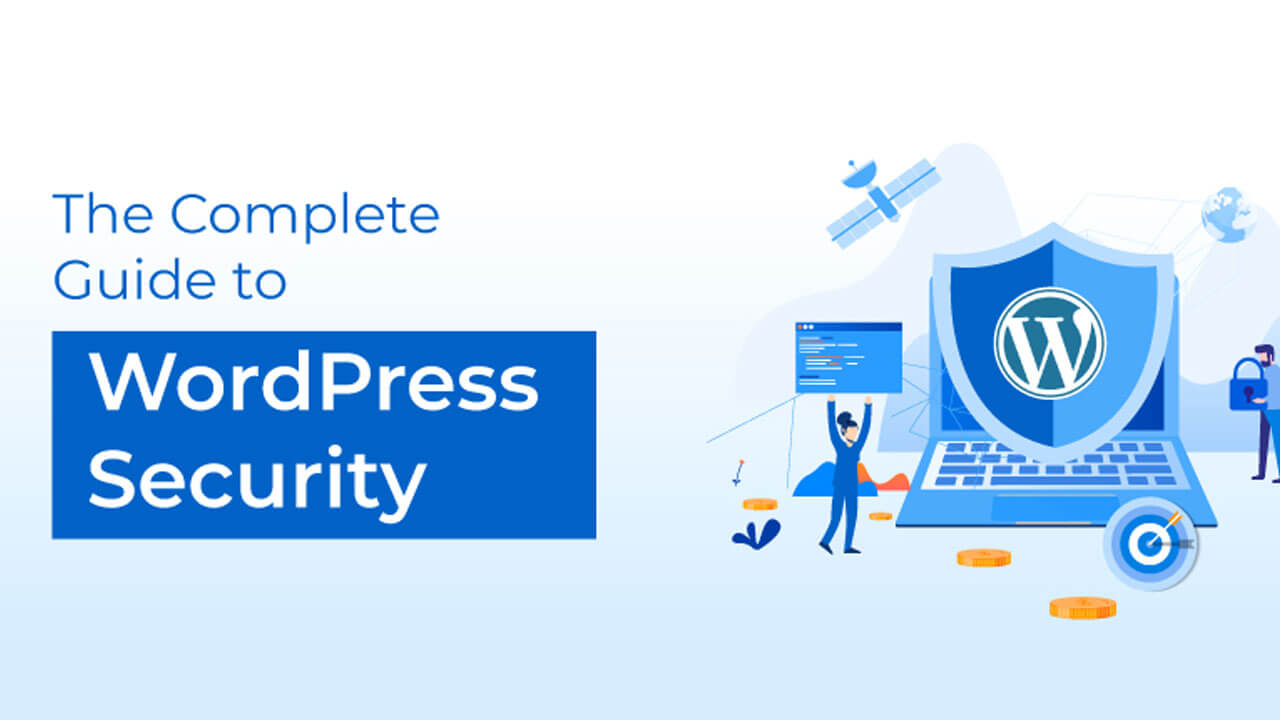WordPress Security has become an important thing nowadays. we all know that WordPress has become one of the most widely used content management systems on the internet, powering millions of websites. However, with its popularity comes the risk of security breaches and cyber-attacks. In this comprehensive guide, we will explore the best ways to keep your WordPress site safe from hackers. Bear in mind that WordPress Security will be your first concern about your website’s success.
WordPress Security & Secure Your Login

One of the primary ways to protect your WordPress site is to secure your login. Here are some best practices to follow:
Strong Passwords
A strong password is the first line of defense against hackers. Ensure that your passwords are at least 12 characters long, and include a mix of uppercase and lowercase letters, numbers, and special characters.
Two-Factor Authentication
Adding an extra layer of security with two-factor authentication can significantly reduce the risk of a security breach. This process requires an additional security code to be entered when logging in.
Limit Login Attempts
Limiting login attempts can prevent hackers from repeatedly trying to guess your password. You can limit the number of login attempts with security plugins.
Rename the Login URL
Changing the default WordPress login URL can help protect your site from brute-force attacks. Hackers often target the default login page to try and gain access to your site.
Keep WordPress Updated
WordPress regularly releases security updates and patches to address any known vulnerabilities. Ensure that your WordPress site is updated to the latest version to stay protected.
Protect Your Site from Malware
Malware can be installed on your website without your knowledge and can cause significant harm. Here’s how to protect your site from malware:
Install Security Plugins
There are several security plugins available for WordPress that can help protect your site from malware. These plugins can scan your site for vulnerabilities, block malicious IP addresses, and provide other security features.
Use a Web Application Firewall (WAF)
A WAF is an additional layer of security that can help protect your site from malware attacks. It analyzes incoming traffic and filters out any suspicious or malicious requests.
Scan for Malware Regularly
Scanning your site for malware regularly can help detect any potential threats early on. You can use security plugins or online scanners to check for malware on your site.
Use Secure Hosting
Choose a hosting provider that has strong security measures in place to protect your site from malware. Look for providers that offer features such as firewalls, malware scanning, and backups.
Secure Your WordPress Files
Protecting your WordPress files is essential to prevent unauthorized access to your site. Here’s how to do it:
Keep Backups
Regular backups of your site are crucial in case of a security breach. Make sure to keep backups on an external server or in the cloud for added security.
Secure File Permissions
Set the appropriate file permissions to ensure that only authorized users can access them. This can help prevent hackers from gaining access to sensitive files.
Disable File Editing
Disabling file editing can prevent hackers from modifying your WordPress files directly. This can be done by adding a line of code to your WordPress configuration file.
Protect Your Database
Your WordPress database contains sensitive information that needs to be protected. Here’s how to secure your database:
Use a Secure Database
Prefix Changing the default database prefix can make it harder for hackers to guess your database name. This can be done during the WordPress installation process.
Limit Database Access
Limiting access to your database can prevent unauthorized access to sensitive information. Ensure that only authorized users have access to your database.
Regularly Backup Your Database
Backing up your database regularly can help ensure that your data is safe in case of a security breach. There are many backup plugins available for WordPress that can automate the backup process and store your data offsite for added security.
Protect Your Site Against DDoS Attacks
Distributed Denial of Service (DDoS) attacks can overwhelm your site with traffic, causing it to crash. Here’s how to protect your site against DDoS attacks:
Use a Content Delivery Network (CDN)
A CDN can help prevent DDoS attacks by distributing your site’s content across multiple servers. This makes it harder for hackers to target a single server and overwhelm it with traffic.
Use a DDoS Protection Service
Many hosting providers offer DDoS protection services that can help protect your site against attacks. These services typically involve monitoring your site for suspicious traffic and filtering out any malicious requests.
Educate Yourself and Your Users About WordPress Security
Finally, one of the best ways to protect your WordPress site and it’s WordPress Security is to educate yourself and your users about security best practices. Here are some tips to maintain WordPress Security:
Keep Up with the Latest WordPress Security News
Stay informed about the latest security threats and vulnerabilities by following security blogs and news outlets. So, being updated about WordPress Security is very important for your WordPress Website’s success.
Train Your Users about WordPress Security
Ensure that your users understand the importance of security and follow best practices, such as using strong passwords and avoiding suspicious links. Also, You can learn more about common problems and their fixing from here.
Stay Vigilant
Be vigilant and monitor your site regularly for any suspicious activity. This can help you detect and prevent security breaches before they cause significant harm. It is known to all that WordPress Security is an important thing to everyone. Also, you can visit here to know more about WordPress Security as well as its success.
Securing your WordPress site is crucial to prevent security breaches and protect your sensitive information. Follow the best practices outlined in this guide to keep your site safe from hackers. Remember to stay vigilant, educate yourself and your users, and keep your site updated and backed up regularly. By taking these steps, you can significantly reduce the risk of a security breach and enjoy a safer and more secure WordPress experience.


